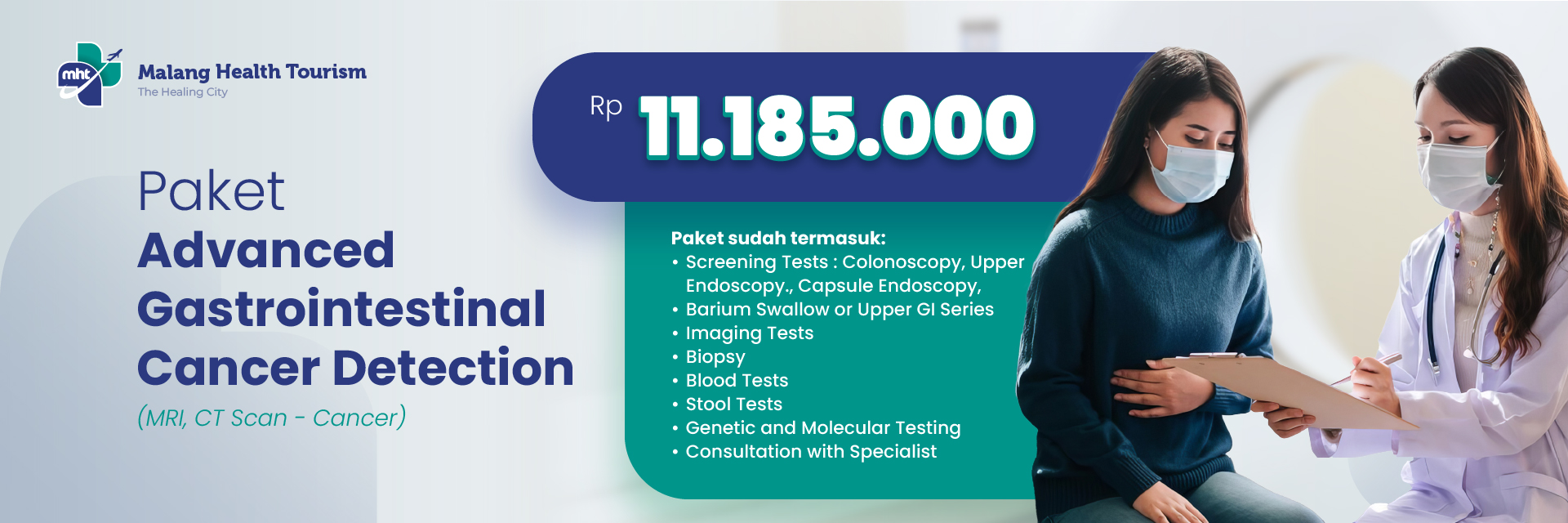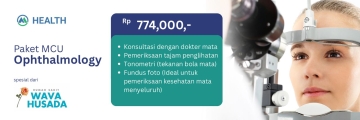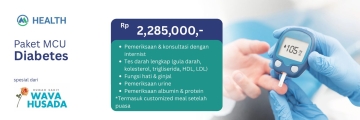Price:Rp. 11,185,000
Advanced Gastrointestinal Cancer Detection Package
Advanced Gastrointestinal Cancer Detection Package
Screening and diagnostic package designed to identify and evaluate the presence of gastrointestinal (GI) cancers, which can affect organs and structures in the digestive system, including the esophagus, stomach, small intestine, colon, and rectum. This advanced package typically includes a range of sophisticated diagnostic tests and procedures aimed at detecting GI cancers at an early stage, thereby improving the chances of effective treatment and better outcomes. The specific components of an advanced GI cancer detection package may include:
-
Endoscopy: This includes procedures like upper endoscopy (esophagogastroduodenoscopy) to examine the esophagus, stomach, and duodenum, as well as colonoscopy to examine the colon and rectum. Endoscopy allows for the direct visualization of the GI tract and the detection of abnormalities or tumors.
-
Biopsy: If suspicious lesions or growths are found during endoscopy, tissue samples (biopsies) may be taken and sent to a laboratory for analysis to confirm the presence of cancer and determine its type and stage.
-
Imaging Tests: Advanced imaging techniques, such as computed tomography (CT) scans, magnetic resonance imaging (MRI), or positron emission tomography (PET) scans, may be employed to assess the extent of cancer, detect tumors, and identify any metastasis (spread to other parts of the body).
-
Blood Tests: Certain blood markers, often called tumor markers, may be measured to check for the presence of substances associated with GI cancers. These markers can be useful for monitoring treatment progress and evaluating disease recurrence.
-
Stool Tests: Fecal occult blood tests (FOBT) may be conducted to detect hidden blood in the stool, which could indicate colorectal cancer or other GI issues.
-
Genetic and Molecular Testing: In some cases, advanced GI cancer detection packages may include genetic or molecular testing to identify specific genetic mutations or biomarkers associated with certain GI cancers. This information can guide treatment decisions.
-
Consultation with Specialists: The package typically includes consultations with gastroenterologists and oncologists who specialize in the diagnosis and treatment of GI cancers. They will review the results, provide recommendations, and discuss treatment options if cancer is detected.
These advanced detection packages are valuable in the early identification of GI cancers and the planning of appropriate treatment strategies. The specific components and scope of the package may vary depending on the healthcare facility, the individual's risk factors, and clinical history. Individuals with family histories of GI cancers or other risk factors should consult with healthcare providers to determine the most suitable screening and detection options for their specific needs.


.png)






